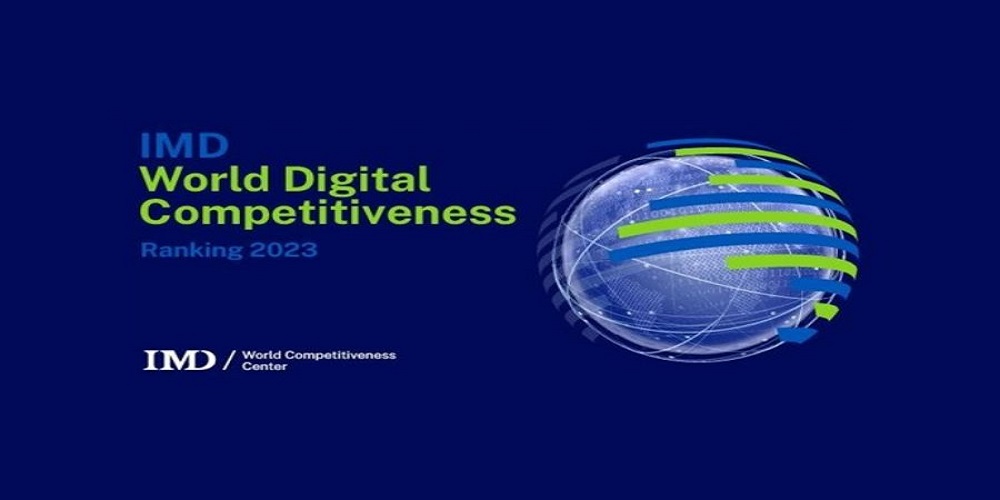Lausanne, December 4: The International Institute for Management Development (IMD) has today published the 2023 World Digital Competitiveness Ranking (WDCR), in which India ranks 49th among 64 economies. According to IMD’s study, India has made significant in terms of cybersecurity knowledge but lacks on fronts like technology and future readiness.
IMD’s World Digital Competitiveness Ranking offers insights into how various nations are navigating digital transformation in the era of artificial intelligence (AI). Essentially, it sheds light on the essential elements that contribute to a nation’s genuine digital prowess —a crucial quality as the impact of this technology continues to reshape society.
The leading economies in this year’s ranking are akin to “digital nations,” implying countries that actively promote the comprehensive integration of digital technologies, encompassing AI, across governmental, corporate, and individual spheres.
The United States moved back to the top position with robust results across all three factors: knowledge, technology, and future readiness. The consistency is the same as that of the Netherlands, which advanced four positions and ranks second, followed by Singapore, which ranked first in the technology factor.
The overall leader of the 2022 edition of the ranking, Denmark, dropped to fourth place mainly due to a decline in the future readiness and technology factors. Switzerland, the top-ranked economy in the knowledge factor, maintained its position and rounded out the to-5.
In the Asia-Pacific region, India has slipped to 12th place among the 14 countries, after being 11th for the four consecutive years. On the other hand, among the 27 nations with a population of more than 20 millions, India is ranked 18th, falling two positions compared to last year.
“While we measure no specific AI indicators, the technology sits silently at the core of several of the sub-factors that we quantify: talent, regulatory and technological frameworks, and adaptive attitudes and business agility. On a data level, the quality of digital regulation, the funding available for technology development, and the degree of company agility are all data points that are enmeshed with AI,” explains Professor Arturo Bris, director of IMD’s World Competitiveness Center, which has been producing the WDCR since 2017.
In terms of knowledge in the cybersecurity space, India improved on parameters like talent and training and education, but retreated on a sub-factor of scientific concentration. Graduates in sciences and R&D productivity by publication emerged as the top strengths.
In terms of technology, India stands in 50th place as enforcing contracts, wireless broadband, and internet users were the biggest weaknesses, while investment in telecommunications, along with IT and media stock market capitalization, came in as the biggest strengths for the company.
India was 51st in the future readiness parameters, where it saw tablet possession, internet retailing, and E-governance as its biggest weaknesses, while world robots distribution emerged as its biggest strength.
The World Bank has identified five countries that account for 75% of the total investment in digital infrastructure in the world in 2023: China, Brazil, India, Indonesia, and Vietnam. These countries captured $68.3billion in investments.
About the International Institute for Management Development (IMD)
The International Institute for Management Development (IMD) is an independent academic institute based in Lausanne, (Switzerland) and Singapore, founded by business executives for business executives. It strives to be the trusted learning partner of choice for ambitious individuals and organizations worldwide. Its executive education and degree programs are consistently ranked among the world’s best by the Financial Times, Bloomberg, Forbes, and others. Its leading position in the field is grounded in our unique approach to creating real learning, real impact.





